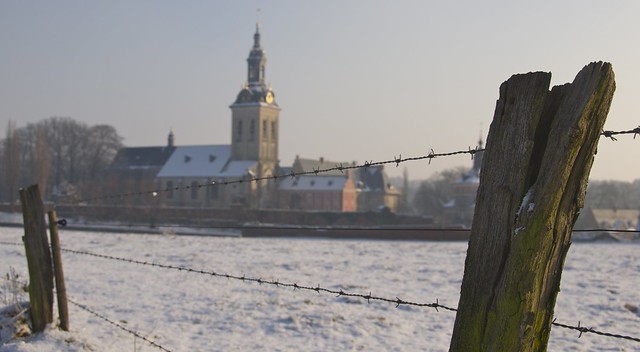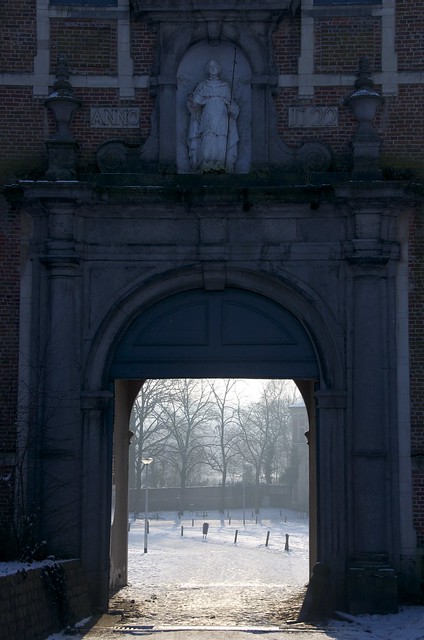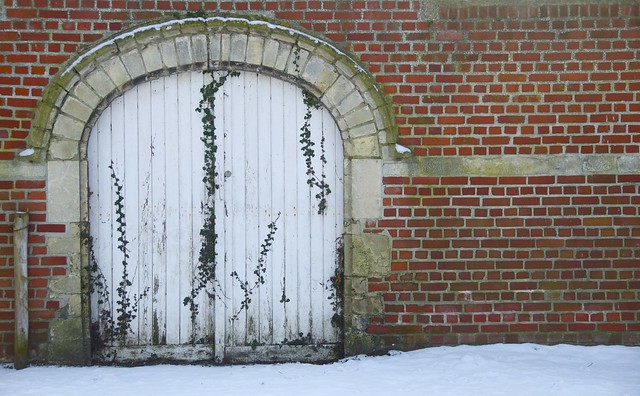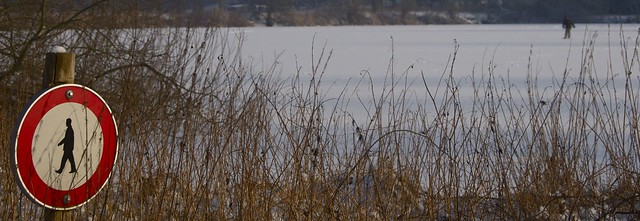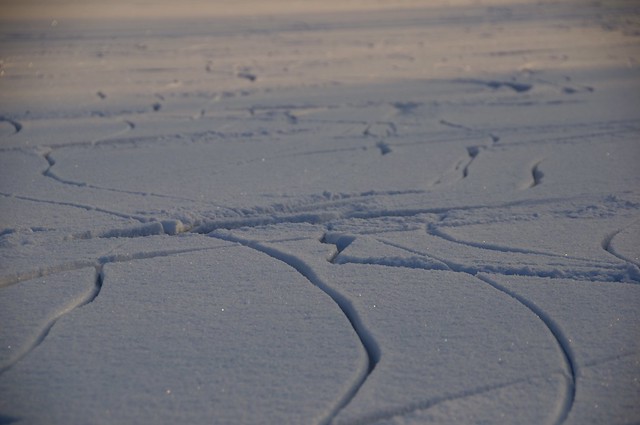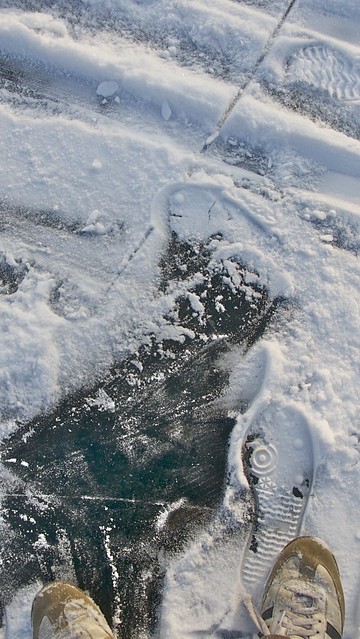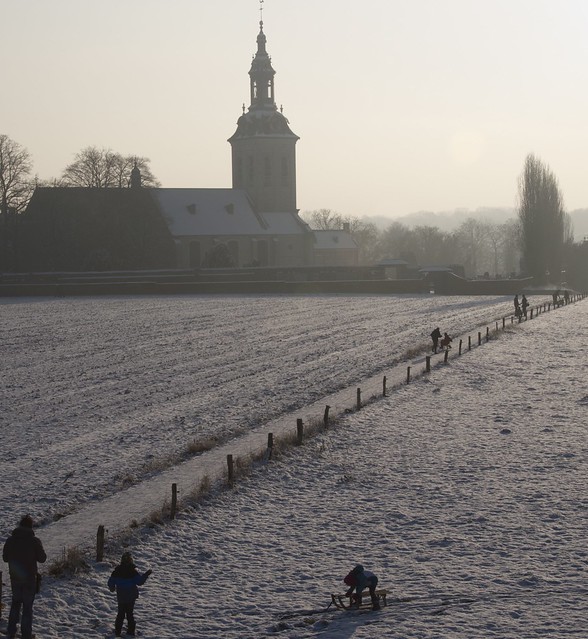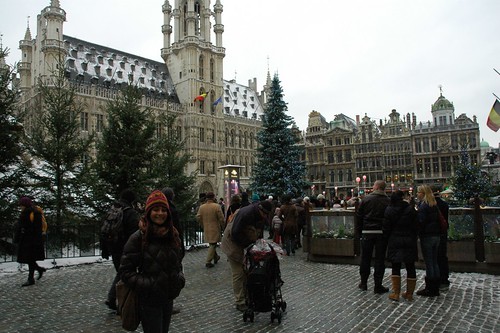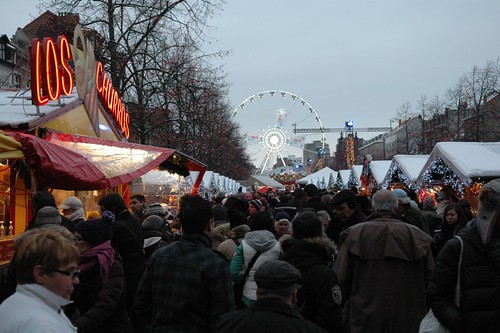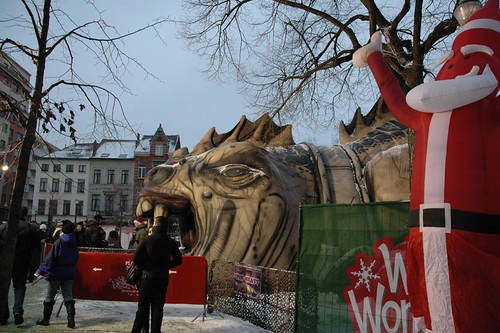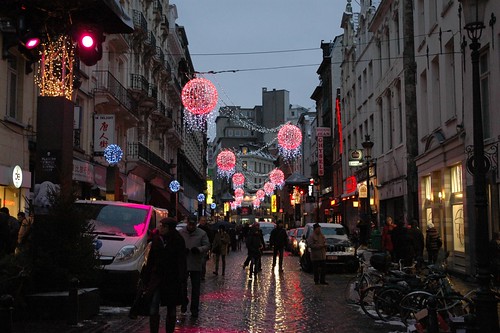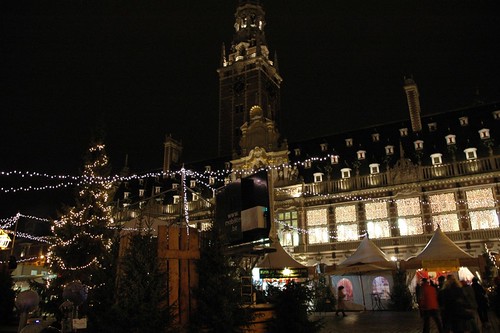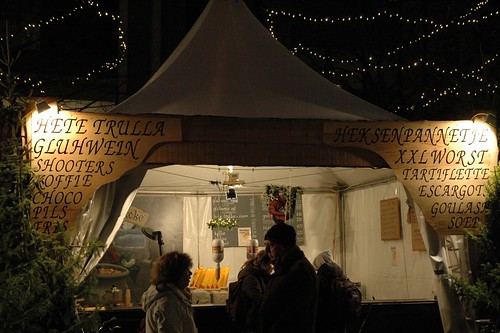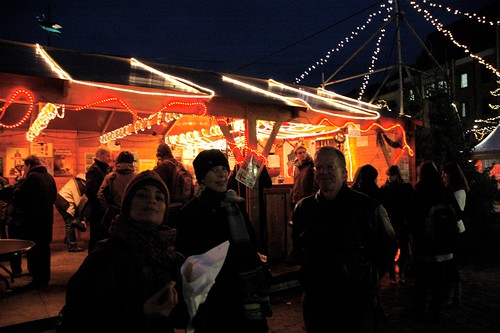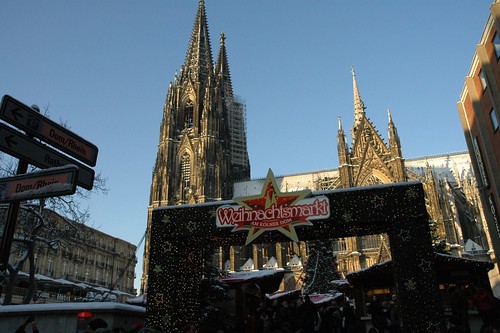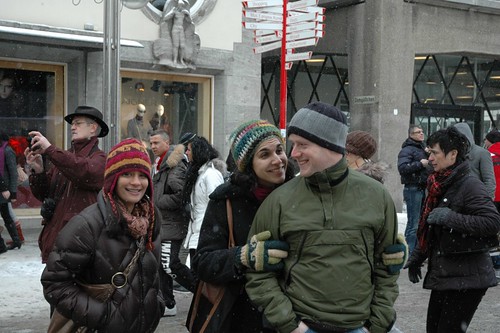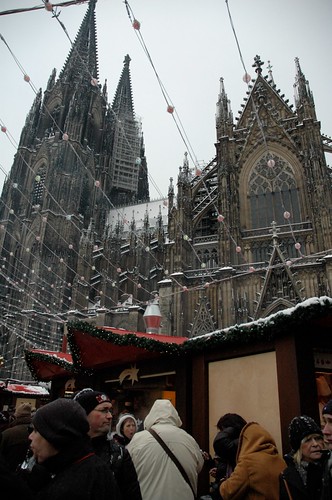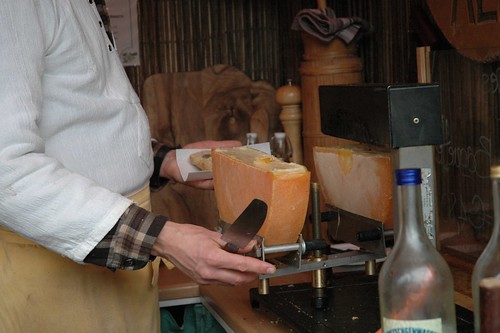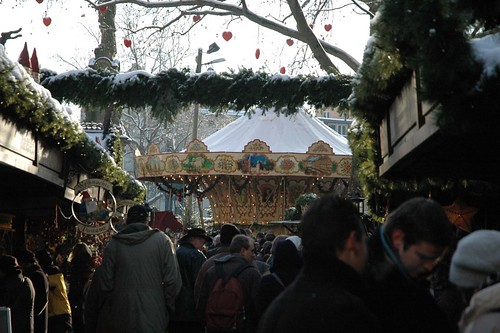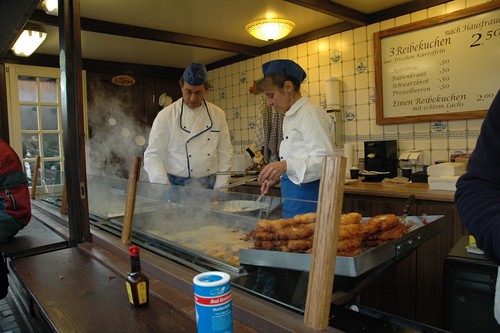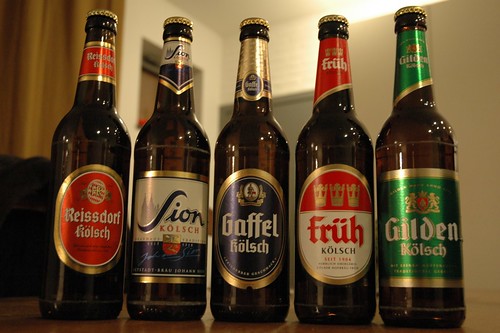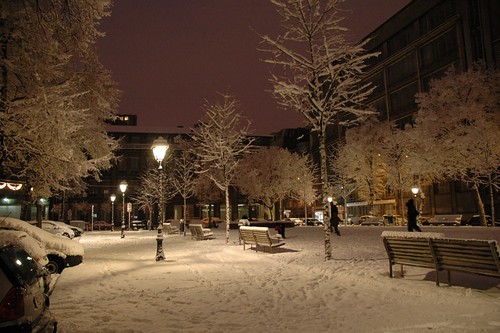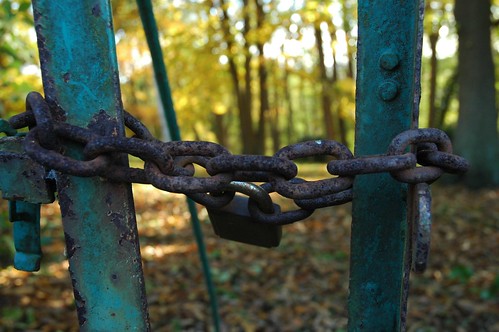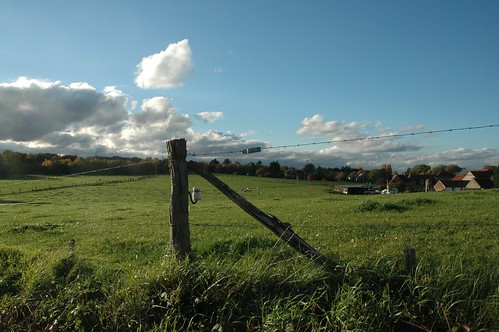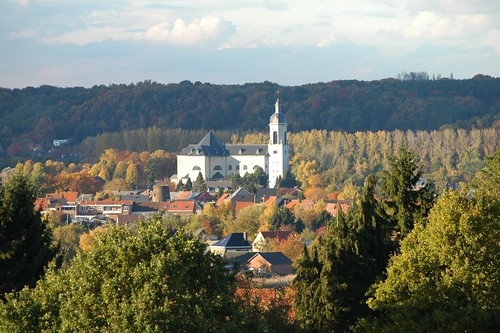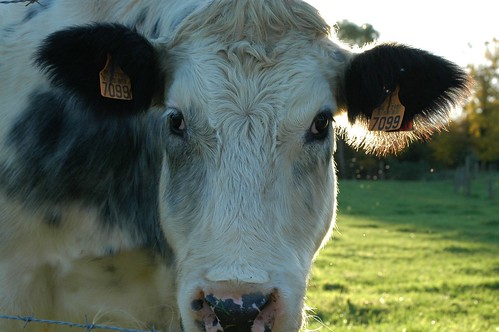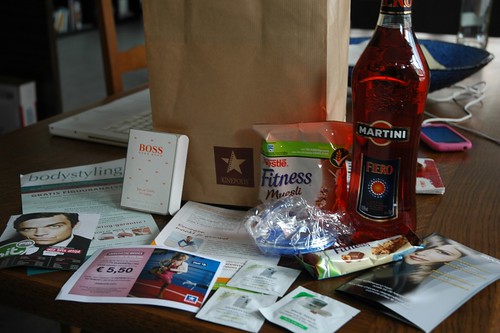Moving abroad is thrilling and exciting, but once the adventure of moving settles a bit, questions about meeting friends and doing basic stuff will undoubtedly arise. But who to ask? This post is a collection of bits and pieces of advice given to me from friends, personal experiences, and browsing the internets.
While we initially moved to Belgium for work, we were totally falling over ourselves at the idea of exploring Belgian beer and biking more closely, and to travel around Europe (with a European country conveniently as home-base). I think the context of "the why" you move is very important in your overall adjustment. Your personal viewpoints on adventure can help you ease into what you get vs. what you expect. Take for example the work on which we moved, a research position at the university. The private employment sector may help you with relocation, housing, moving, lease agreements (3-6-9 year ones), vehicle rental/purchase, obtaining a driver's license (it's easy), visa paperwork, enrolling in health insurance (SIS card), and the bureaucratic Belgian integration. Coming over on an academic position meant that we got support with the visa paperwork and the integration. I found these two things essential in relocating and would not recommend moving without them. Navigating the paperwork solo is daunting and difficult. Having an employer know exactly what steps to take is essential.
Part of adjusting is obvious, but other parts aren't. It took me 6 months to figure out the schedules of the bakers, markets, grocery stores, pharmacies, recycling and trash pick up schedules, and the correct way to set out recycling paper. While Belgium is a country where English is spoken and understood well, it is still culturally different in ways that don't become obvious until you go through the process of setting up your life again. Google translate and common sense are essential.
Meeting others:
Meetup: The Leuven New in Town Meetup organizes social outings monthly. It's laid back, English-speaking, and a great way to meet other international residents. Brussels has many more Meetup groups (beer trekking, crafting, language groups) including other expat groups such as InterNations or the American Women's Club. Joining a sports club, volunteering at an organization, or taking language courses are all great ways to meet others too.
City and practical:
Leuven.be There is always something going on in the center. Subscribe to the city's RSS feeds. Read it in Dutch (use Google Translate if needed); the English site is only geared towards tourism - not towards living in Leuven. The site has all of the essential living information on it.
The Afvalkalender: Garbage, recycling, compost, and paper are all collected twice per month; this ain't America strict rules apply on how and when to set these out. If you never recycled before (what kind of person are you) and choose to throw it out with the trash sometimes the city garbage collectors will leave your garbage (also if it is not tied correctly) conveniently for you to sort out. It is essential to get the Afvalkalender (trash calendar). The city mails them out in early January.
The Library: Tweebronnen Bibliotheek. Leuven's library has a good collection of English, French, German, and Spanish books, music, and DVDs. I hope it is obvious that they have an excellent Dutch book collection. To obtain a card, bring your ID card and EUR 5 and ask to obtain an abonnement (membership). You can check out up to 15 items at a time. Everything is automated, and the staff are very helpful. There is a nice cafe downstairs where you can read your books and enjoy a nice lunch or beer.
No one uses Craigslist: They use Tweedehands, Kapaza, and ebay. If there is some listserv that contains this info for ex-pats please someone tell me! De Spit, a second-hand store, is hit or miss with household goods, but often sells furniture, large appliances, and kitchen goods for dirt cheap. They'll pick up or deliver for EUR 25. Obvious mention: IKEA. Amazon is not widely used, but many stores will ship. The hubs was able to purchase brewing supplies from a Belgian vendor.
Housing: most posts for housing are on
Immoweb. I think email is
used less reliably than the US, always follow up with a phone call.
Get a bike: Long
term bicycle rental can be done at Velo. You can rent out a
bike month-to-month, or yearly (all good rates). Bike theft can be very common if you leave your bike outside overnight, and it isn't locked to anything; it is a national past-time to steal bikes. Storing bikes indoors, or locked to something with heavy duty U-locks can be a deterrent. My Dutch course had a section on how to report bike
thefts.
Short term bicycle rental can be done at the Fietspunt in the station (also operated by Velo). This is a good option for weekly or daily rentals.
Bike routes: Flanders and Holland have a bike number network called the Fietsnet. I've written about using it here and here. I credit usable bike lanes, excellent city infrastructure, and the Fietsnet for living without a car the entire time we've lived here (ok, I credit my friends too because they are so kind and incredible to help out and take us along on trips).
Short term bicycle rental can be done at the Fietspunt in the station (also operated by Velo). This is a good option for weekly or daily rentals.
Bike routes: Flanders and Holland have a bike number network called the Fietsnet. I've written about using it here and here. I credit usable bike lanes, excellent city infrastructure, and the Fietsnet for living without a car the entire time we've lived here (ok, I credit my friends too because they are so kind and incredible to help out and take us along on trips).
Gyms and sport clubs/halls: If you're
affiliated with the university you can apply for a membership to use
the sports facilities they are all very good and affordable;
Sportoase is the biggest gym/wellness facility in town. It costs
more, is centrally located, has weight machines, group lessons,
indoor pools, squash courts, climbing wall, and a basketball gym. In
September, the papers publish a listing of all the sports clubs and
activities. Leuven has a well-organized ultimate scene too (search for JetSet).
Driver's License: If you are from the
US, you can usually trade in your current (cannot be expired) US
driver's license for a Belgian one at the city hall. Are there other readers that have done this? If so, please comment, I'd love to hear about your experiences. Go with recent
passport photos and bring cash. You'll trade your current license and
be issued a Belgian one; if you move away permanently return the
Belgian license and the city will return your original license. I had
no problems obtaining this, and I was able to use the Belgian license
abroad and back in the states. It took 20 minutes and I walked out
the same day with the license. On a trip back to the states, I went
ahead and got an international permit to accompany the license (again
passport photos and cash), but I never needed it. Your identification
card will be your "main ID" not your license (this is a
pain in the wazoo when you go back to the US, when you only have a Belgian ID card and now a Belgian license, oh what fun when trying to explain it as your form of ID). The cheapest place to
get passport photos is the train station (5 for EUR 5).
Haircuts: Of all the things moving will
do to your life, finding a new stylist is always the hardest. They
don't use a razor for cuts. Always take a picture of what you want,
or maybe an older picture of you with your desired haircut. Don't worry so much, if you end up with a new haircut it's not the end of the world. Bangs/fringe are called frou-frou which are typically straightcut
fringe or bangs; for swept over bangs do the hand motion or be
descriptive enough. Layers are called lagjes; if you take a pic along
with you, you can say ik wil hetzelfede kapsel houden which means the same
hairstyle as before, then use descriptors such as alleen een beetje korter
of hoger of langer (a bit shorter or a higher or longer). Remember
use cm to designate how much of the bottom you want off (for example één of twee centimeters is genoeg (1-2 cm is enough). I would
recommend Sizoo on the Diestestraat and Academy-Coiffure on the
Muntstraat.
Travel:
Trains. Give yourself enough time to
buy tickets if you purchase them on the day of travel. You can only
use bancontact or proton at the automated stations (idiotic, I know) and the automated stations are few and far at any of the stations (Brussels Zuid/Midi I'm talking about you).
If you must catch a train and haven't purchased a ticket, find staff
on the train and let them know as soon as you get on.
They will often waive the buying on board fee. You can usually find them by hanging back on the platform towards the center of the train. They'll whistle and indicate "all clear," and you can let them know. A go-pass (for those
under 26 y/o at EUR 50) or a 10-time pass can be purchased at the
station (EUR 74). The ticket should be filled out before entering the
train (or as soon as you sit down). You can have multiple people use
the ticket (one line per person). Just fill in the origin and
destination. Each line is good for one 1-way journey at EUR 7.40.
Book tickets for the high speed trains like, Thalys and Eurostar, in
advance. You'll always get a better rate. On weekends (travel
beginning after 7 pm on Friday up until 11:59 pm Sunday) a weekend
ticket can be purchased for a much lower rate, and it includes one
outward journey to your
destination and one return journey. The
advantage of this is that you don't have to complete travel on the
same day. It is not
for "x" amount of travel between 2 destinations (e.g.
Brussels to Gent) for an entire weekend.
Bus: De Lijn is the bus system in Flanders; busses are well connected, and in rural parts shuttle busses can be called (see this useful post from the Thirsty Pilgrim). De Lijn also runs the trams.
Bus: De Lijn is the bus system in Flanders; busses are well connected, and in rural parts shuttle busses can be called (see this useful post from the Thirsty Pilgrim). De Lijn also runs the trams.
Use-it
maps. These are free tourist maps written by locals. Ask at any
tourist office, they are free! If you use the Leuven map, you might
even teach your local friends new things about Leuven.
Car Share: Cambio is a carsharing
service. I've rented cars from the aiport at Zaventem and at an Avis in
Korbeek-Lo. Car rental is a major pain in the arse, and expensive. I
would love to get feedback if you've used Cambio.
Medical:
In Belgium, accessing the doctor
(huisarts), and medical system is easy. English will not be a
problem. Dentists are tandarts, veterinarians are dierenarts. If you
need to see a specialist, your normal doctor will refer you after an
initial consultation. Going to the doctor is easy. Once you find a
doctor, you'll call and set up an appointment (often you can go the
same day, or that week). When you arrive to the doctors office, you
are rung in, and asked to wait in a waiting area. Many huisarts
offices are located in neighborhoods, and many are independent
(zelfstandige). In a main clinic you can check in with reception, but
in an independent office, you let yourself in, and you wait. The
doctor comes and meets you, escorts you to the office (office and
examining room are often the same), and at the conclusion of your
visit, you pay (bring cash), and the doctor escorts you out. The cost of medical
care is affordable. An office visit without health insurance is
usually EUR 20-25 and you'll leave with a green or white rectangular
document. Once enrolled in the Belgian health system (probably CM),
your health insurance (de ziekteverzekering) will give you a sheet of yellow stickers
(kleurtjes), which you paste onto the top of the document; bring
these same labels to a doctor's appt. Then you drop it in a box at
any health insurance office to get up to 75% of your costs
reimbursed. A doctor recently told me that the sheets are basically
money. CM is very efficient.
If you're used to preventative care in
the US (regular blood and cancer screenings, blood pressure and
weight checks) the system here is slightly different. Some screenings
are viewed as not medically necessary. It depends on the reason for
your visit. On request, these can be done. When I inquired about this
difference, I was told that they follow evidence-based medicine and
guidelines, along with basic common sense. Of course, I went back and
looked these up. Although, I think screening is cost-effective, and
generates baseline data about basic health, I've concluded that
Belgians access the health care system as needed, they have efficient
electronic medical records, they are probably more likely to visit
the same doctor over time (Belgium is a tiny country); the doctor may
manage risk factors more effectively, or manage symptoms before they
become risk factors, and develop a broader understanding of the
patient's health. On average, visits are longer. A doctor will
develop more of a rapport with patients because they are obtaining a
lot of the subjective data (e.g they are learning about their
patients, instead of managing the symptoms they come in with). Costs
for visits, prescriptions, routine procedures are
all much cheaper than the US. The point that is made from every
American I talk to about the medical system is that Belgian's pay a
much higher tax rate; the benefits/drawback, rights, and monetary
expenditures of healthcare in a private or socialized system warrants
its own post. However, I have been very happy with the care here -
and I have never had a to deal with a disgruntled receptionist, and overall I think the US could benefit and learn from many of the ways that other countries manage their health care models.
Random note: Since I moved back to teach nutrition courses at a large public university, I actually taught about health care and researched the Affordable Care Act (Obamacare) extensively, along with how Americans access the health care systems in the US. My experience in Belgium made me far more passionate about fixing the health care system in the US - and far more knowledgeable about the issues that make the US model an extreme health care model compared to economically similar industrialized countries where citizens access a universal tax subsidized model.
Random note: Since I moved back to teach nutrition courses at a large public university, I actually taught about health care and researched the Affordable Care Act (Obamacare) extensively, along with how Americans access the health care systems in the US. My experience in Belgium made me far more passionate about fixing the health care system in the US - and far more knowledgeable about the issues that make the US model an extreme health care model compared to economically similar industrialized countries where citizens access a universal tax subsidized model.
Pharmacies: around town pharmacies, or
apotheeks, are designated with a green plus sign. Most are open
normal hours. For instance, they are open 8-12 pm, closed for lunch
~12-1:30 pm, and then reopen 1:30-6:00 pm. Although it's weird that
they sell make-up and other "health" products, apotheeks
are where you can find most OTC meds, and of course where you go to get prescriptions filled (voorschrift). Honestly every time I've had a prescription filled I literally go through shock. The costs are so affordable; some prescriptions for women's health (shall I point out the terrible political mess that is being made of birth control in the US?) can be filled every 3 months, or once per year. Once. per. year. Go on, guess how much. OTC drugs are not sold in
grocery stores or drugstores. Most major apotheeks rotate weekend and
overnight hours. This info is posted outside of the apotheek, or
online here and
here.
Update: one year of mostly generic oral contraceptives cost me 54 EUR without health insurance.
Update: one year of mostly generic oral contraceptives cost me 54 EUR without health insurance.
Pets:
Pets: Belgium is pet friendly. The
paperwork for bringing your pets is almost as long as the paperwork
you will have had to fill out to move here. Check the Belgian
consulate for the necessary paperwork, and allow 3 months to get it
done. You'll need an international microchip (even if you already have a domestic one), proof of rabies
vaccination within a specific time before emigrating, and have your
paperwork cleared by your state's (e.g the state that you depart
from) USDA office. Mr. Duds is a cat; once his paperwork was done, we
carried it, him, (and copies) with us while traveling, and it's
become a distant memory. It was a pain at the time, but it was
uneventful. We had no problems at immigration/customs. There are lots
of vet offices (dierenarts).
Update: Going through security with a pet at Zaventem (Brussels National Airport) was painless. All the airport personnel that I encountered were proper and friendly. They were also excited to see the cat. In contrast, when we left Europe, we left from Spain, and the airport security personnel were total dimwits when it came to pet security inspection.
Update: Going through security with a pet at Zaventem (Brussels National Airport) was painless. All the airport personnel that I encountered were proper and friendly. They were also excited to see the cat. In contrast, when we left Europe, we left from Spain, and the airport security personnel were total dimwits when it came to pet security inspection.
Language:
Language courses: if you have time to
commit to 6-12 hours per week of language courses, the intensive
language courses at the Institute voor Levende Talen (ILT) and
Centrum voor Levende Talen (CLT) are exceptional. You will be
speaking the language in some format when you leave. I have nothing
but gushing compliments - and you'll meet lots of other people in the
courses. I took Dutch and Spanish through both institutes and I can
say that I'm functionally fluent (can go to the markets, talk on the
phone, set up appointments, speak with medical staff, bank, and get
by on my Dutch) after completing Level 2 at ILT. I took Spanish
(Level 1) at CLT this summer and it was a great course for the value
and time (2 weeks intense summer course). Groep T offers courses
which can accommodate working hours, so this may be a great option,
however friends that took courses at ILT and CLT complain about the
courses lacking intensity. In addition, reading newspapers, watching
TV, trying to speak Dutch/Flemish everywhere you go, and forcing your
Belgian friends to speak with you are all good ways to gain
confidence in speaking, and they are all great ways to learn about
Belgian culture and history.
Shopping, finding exotic foods, where
to buy good coffee and beer:
The major shopping sales (Zolden) occur
during January and July. Smaller sales do occur, but these are the
largest. You might have price sticker shock, and the customer service
is different (at store like H&M, Zara, Pimkie you put your
clothes away after trying them on). Most stores are open from 10-6
pm; grocery stores are open 8 am - 8 pm (approx.). Most stores are
closed on Sundays. At grocery stores, be prepared and bring your own
bags.
The markets. Sunday is Heverlee, Monday is Wijgmaal, Wednesday is Kessel-Lo,
Friday and Saturday are Leuven. The markets sell everything from
fresh produce, cheese, eggs, breads, meats, seafoods, to clothes,
crafts, fabrics, plants, and flowers. The prices are all very good; be prepared to
look very local and assert yourself when you're next in line. Using
the markets is the best way to pick up the language and get a bit
more comfortable using it.
Food and cooking: in Leuven, you can
purchase Mexican ingredients, like chipotle peppers, pinto beans, and
black beans, at Exotic World on the Brusselsesteenweg. They have
Indian, Chinese, Korean, African, Turkish; for southeast Asian go to
Thai House Supermarkt on the Tiensestraat. There are many ethnic food
shops along Brusselsesteenweg. I have never been too pleased with
their selection of produce, it often looks days old.
Coffee: Koffie Onan. Always full of
Spaniards and Americans. They started self-roasting their own
beans. The staff are excellent, knowledgeable, and very kind.
Update: Recently, I read that a Starbucks is coming to the Leuven train station. Someone send me a picture!
Update: Recently, I read that a Starbucks is coming to the Leuven train station. Someone send me a picture!
Beer: Most grocery stores have a decent
selection of beers. For harder to find items head to ABS Drinks in Winksele
or ABC Drinks in Leuven. They carry hundreds of different Belgian beers.
Bottle deposits (e.g. beer bottles): As
you live here, you'll see that most people buy crates of Stella or
Jupiler. When you purchase them this way, you pay some extra as
deposit (between 10-20 cents) for the bottles and crate (often EUR
4.50). As for other beer bottles, check the back, and look for a coin
deposit sign. Most grocery store have an automated bottle return
where you can bring beer bottle back for a deposit. Print out a
receipt and take it with you to the cashier (kassa) on checkout.
Embarrassing things I hate to admit:
1. I did not know that you had to put dishwasher salts in the dishwasher.
2. I was caught throwing bottles away;
a woman saw me dumping loads of beer bottles into the recycling bin
and she had to show me the deposit sign. Groan!
3. Karl got a EUR 50 ticket for biking
with his backlight off. The police are serious about enforcing
traffic regulations; biker's beware!
If you use this and it's helpful, or you have a suggestion/update please comment below. I'll likely update this. I've been abroad since Jan 2010.
Things I now miss:
1. the laid back and constant use of the bicycle for nearly all modes of transportation
2. Certain aspects of the food culture: dairy foods in Europe, the markets, smaller portion sizes for drinks and beverages, very little mark-ups on beer and wine at restaurants. The smaller portions of foods at the grocery stores, and the total cost of healthier, whole, foods is cheaper in Europe than the US.
3. Terraces in pedestrian-only plazas. In general, I miss the plazas and the social nature of how well connected the plazas are to the rest of the center.
4. The ease at accessing the medical system there. Even as a foreigner it was easier to get an appointment at a doctor's office than an insurance-carrying person in the US.
5. The way that news is reported.
Author's note August 8, 2014: I lived in Leuven from January 2010 to April 2012; after a brief 1 month move to Barcelona, Spain, I relocated back to the US in May 2012. Most of the information on here is reflective of spring 2012. I have had so many inquiries to this original post that I have added updates above. Readers, thank you so much for your awesome comments, and for reaching out to me through the contact form. Hartelijke dank! Neeli
If you use this and it's helpful, or you have a suggestion/update please comment below. I'll likely update this. I've been abroad since Jan 2010.
Things I now miss:
1. the laid back and constant use of the bicycle for nearly all modes of transportation
2. Certain aspects of the food culture: dairy foods in Europe, the markets, smaller portion sizes for drinks and beverages, very little mark-ups on beer and wine at restaurants. The smaller portions of foods at the grocery stores, and the total cost of healthier, whole, foods is cheaper in Europe than the US.
3. Terraces in pedestrian-only plazas. In general, I miss the plazas and the social nature of how well connected the plazas are to the rest of the center.
4. The ease at accessing the medical system there. Even as a foreigner it was easier to get an appointment at a doctor's office than an insurance-carrying person in the US.
5. The way that news is reported.
Author's note August 8, 2014: I lived in Leuven from January 2010 to April 2012; after a brief 1 month move to Barcelona, Spain, I relocated back to the US in May 2012. Most of the information on here is reflective of spring 2012. I have had so many inquiries to this original post that I have added updates above. Readers, thank you so much for your awesome comments, and for reaching out to me through the contact form. Hartelijke dank! Neeli

